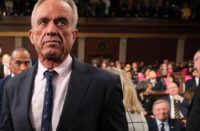During his electoral campaign, Donald Trump, the incoming President, pledged to dismantle the Department of Education, citing its excessive budget and staff members, whom he claims are often detrimental to our children. In a campaign video from September 2023, he criticized educational institutions for indoctrinating young minds with inappropriate racial, sexual, and political content.
Trump announced early in his administration that he plans to shut down the Department of Education in Washington, D.C., and delegate all education-related work back to the states. This move is in line with a long-standing objective of some Republicans to dismantle the department, an idea that dates back to its inception in 1980. This goal is highlighted in the educational section of Project 2025’s “mandate for leadership,” a blueprint for Trump’s administration. While Trump has publicly distanced himself from this project, its objectives and proponents continue to have a significant influence on his administration.
Despite being the smallest of all Cabinet agencies, the Department of Education plays a critical role in distributing federal financial aid for education, gathering and sharing data and research related to schools, and preventing discrimination in schools. It contributes less than 10% of the country’s public school funding, which is mainly sourced from state and local taxes.
According to Joshua Cowen, a professor at Michigan State University, disbanding the agency will not be a straightforward task. Republicans, despite controlling both houses of Congress and the presidency, may find complete closure of the Department of Education unpalatable. Cowen suggests that the Republicans might focus on reducing funding for programs aimed at equity and inclusion, as well as those beneficial to migrant communities.
Another probable target is the Title I funding, which offers financial assistance to school districts serving low-income students. Aaron Pallas, a professor at Columbia University, suggests that shifting this responsibility to states and local governments is in line with the Project 2025’s proposal. He also predicts a rearrangement of the department’s responsibilities to other federal agencies.
Trump’s campaign video also promised parents the choice to select a different school for their children. However, enthusiasm for dismantling the Department of Education may not be as broad as assumed. On November 5, three states, including two where Trump was victorious, rejected ballot measures that would have redirected money from public education.
Proposals in Kentucky, Colorado, and Nebraska to bolster school choice and voucher programs were rejected by voters. Cowen explains that rural Republicans have historically resisted such schemes due to a lack of private schools in their districts. Politicians representing rural school districts may also hesitate to support legislation that cuts funding, as it could impact their reelection prospects.





